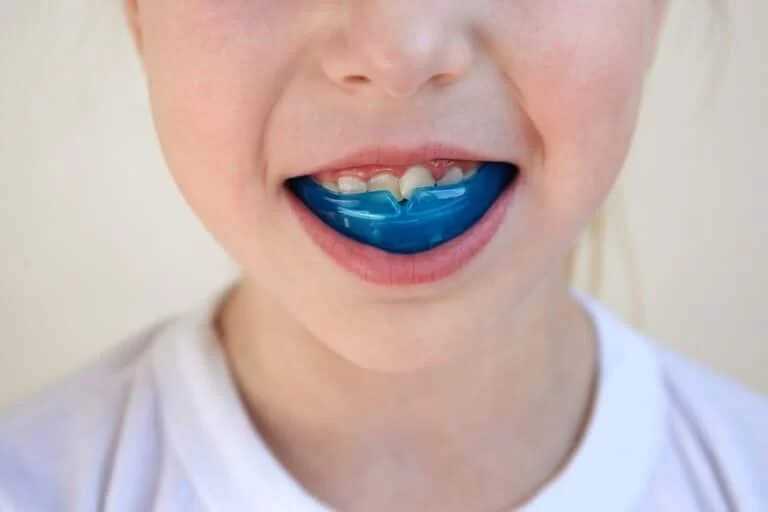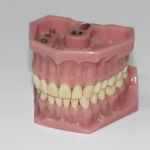 :
:- Why Wear a Mouthguard During Sports?
- Types of Mouthguards: Which One is Right for You?
- Common Sports Injuries Prevented by Mouthguards
- Real-Life Case: How Mouthguards Saved the Day
- How to Care for Your Mouthguard
Why Wear a Mouthguard During Sports?
Wearing a mouthguard during sports is a crucial step in protecting your teeth, jaw, and overall oral health. Many people overlook the importance of mouthguards, assuming that injuries won’t happen to them. However, sports-related injuries are far more common than many realize. Whether you’re playing football, basketball, or even hockey, a mouthguard acts as a protective barrier, reducing the risk of tooth fractures, jaw injuries, and soft tissue damage.
Studies show that athletes who wear mouthguards are significantly less likely to suffer from these types of injuries. A well-fitted mouthguard absorbs impact and spreads the force across the teeth and gums, which can make all the difference in preventing serious damage. If you want to stay safe and ensure that your smile remains intact, wearing a mouthguard should be a non-negotiable part of your gear.
Types of Mouthguards: Which One is Right for You?
Not all mouthguards are created equal, and choosing the right one for your sport is essential. There are generally three types of mouthguards: stock mouthguards, boil-and-bite mouthguards, and custom-fit mouthguards. Each has its pros and cons depending on your needs and preferences.
Stock Mouthguards are the least expensive but often the least comfortable. They come pre-formed and can’t be adjusted, so they may not fit properly, leaving gaps where injury can occur.
Boil-and-Bite Mouthguards offer a better fit than stock versions. You heat them in water, then bite down to mold them to the shape of your teeth. While they provide a more secure fit, they still may not offer the precision and comfort of a custom mouthguard.
Custom Mouthguards are made specifically for your mouth by a dentist. These provide the best protection and comfort, though they come at a higher price. If you're serious about protecting your teeth during sports, a custom-fit mouthguard is the best option to ensure maximum safety and comfort.
Common Sports Injuries Prevented by Mouthguards
Sports injuries can range from minor to severe, and some can have long-lasting effects if not properly managed. Mouthguards are designed to reduce the impact of collisions and falls, which can result in a variety of injuries. Common injuries that mouthguards help prevent include:
- Tooth Fractures: A direct blow to the face can lead to cracked or knocked-out teeth. Mouthguards help absorb the shock and protect your teeth.
- Jaw Fractures: A blow to the chin or jaw can cause fractures. A mouthguard helps distribute the force and reduces the risk of serious injury.
- Soft Tissue Injuries: In many cases, an athlete’s lips, tongue, or cheeks can be cut or bruised during a collision. Mouthguards provide a barrier to prevent these injuries.
- Concussions: While mouthguards can't prevent concussions entirely, they may reduce the severity by helping to stabilize the head and neck.
Overall, a mouthguard is one of the simplest and most effective ways to minimize the risk of oral injuries during physical activities.
Real-Life Case: How Mouthguards Saved the Day
Consider the case of a young athlete named Alex, who plays high school basketball. One day during a game, Alex collided with another player, and the impact was so strong that he was knocked backward. Without a mouthguard, Alex could have easily suffered a serious injury, such as a fractured tooth or a jaw injury. Fortunately, he was wearing a high-quality mouthguard, which absorbed most of the shock. He walked away with only a minor bruise to his lip, while his teeth and jaw were unharmed.
This case is a reminder that injuries can happen at any moment during sports, and a mouthguard is an affordable and simple way to protect yourself. Many professional athletes also wear mouthguards to minimize the risk of injuries, so it’s clear that this piece of equipment is essential for both amateurs and professionals alike.
How to Care for Your Mouthguard
Once you've invested in a mouthguard, it's important to take proper care of it to ensure it continues to provide the best protection. Here are some tips for maintaining your mouthguard:
- Clean after each use: Wash your mouthguard with cool water and mild soap. Avoid using hot water, as it can warp the material.
- Store properly: When not in use, store your mouthguard in a ventilated case to prevent bacteria buildup and ensure it keeps its shape.
- Check for wear: Over time, mouthguards can wear down. Regularly inspect it for cracks, tears, or changes in fit. If it no longer fits properly, it’s time for a replacement.
- Avoid extreme heat: Never leave your mouthguard in direct sunlight or near heat sources, as this can damage it.
By taking care of your mouthguard, you can ensure that it continues to protect you and last for a long time. If you're unsure about which mouthguard to choose or need recommendations, visit Dentistry Toothtruth for the best options tailored to your needs.







 Emergency Dental Help5.0 (1 review)
Emergency Dental Help5.0 (1 review) Kocian Family Dental5.0 (486 review)
Kocian Family Dental5.0 (486 review) Leila Zamiri DDS - Cherry Office4.0 (134 review)
Leila Zamiri DDS - Cherry Office4.0 (134 review) Stahl Dental Studio4.0 (36 review)
Stahl Dental Studio4.0 (36 review) Arpino Orthodontics5.0 (133 review)
Arpino Orthodontics5.0 (133 review) Lowell Dentistry and Braces4.0 (46 review)
Lowell Dentistry and Braces4.0 (46 review) The Importance of Oral Health Education During Pregnancy for a Healthy Pregnancy
The Importance of Oral Health Education During Pregnancy for a Healthy Pregnancy Best Tips for Brushing Your Teeth Properly for Healthy Gums: Essential Techniques for Oral Health
Best Tips for Brushing Your Teeth Properly for Healthy Gums: Essential Techniques for Oral Health Why Skipping Dental Checkups Can Lead to Bigger Oral Health Problems
Why Skipping Dental Checkups Can Lead to Bigger Oral Health Problems Advantages of Porcelain Dental Restorations
Advantages of Porcelain Dental Restorations How Can Diabetes Cause Tooth and Gum Problems? Preventing and Managing Oral Health Issues
How Can Diabetes Cause Tooth and Gum Problems? Preventing and Managing Oral Health Issues Healthy Habits for Promoting Good Oral Health and Hygiene: Tips for a Healthy Smile
Healthy Habits for Promoting Good Oral Health and Hygiene: Tips for a Healthy Smile